10 UCT researchers selected as finalists for the 2015/2016 NSTF Awards
23 May 2016 | Story by Newsroom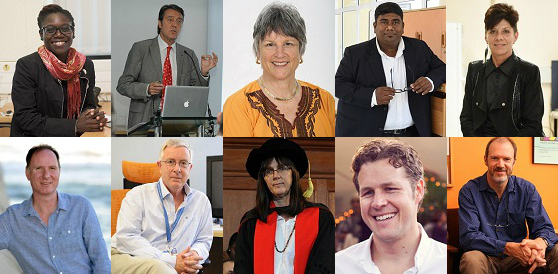
The NSTF Awards, in partnership with South32, recognise outstanding contributions to science, engineering and technology (SET) and innovation by researchers and other SET-related professionals.
This year, ten UCT researchers have been chosen as finalists for a total of 14 awards. They have been nominated in the following categories:
Lifetime award
(For an outstanding contribution to SET and innovation by an individual over a period of 15 years or more)
Professor Sue Harrison: Director of the Centre for Bioprocess Engineering Research, SARChI* chair – Bioprocess Engineering.
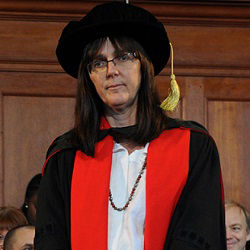
Professor Harrison is an accomplished bioprocess engineer, integrating the chemical engineering, mineral processing and biotechnology disciplines.
Through inter-disciplinary research, her expertise in bioprocess systems, bioreactor design and process integration delivers solutions for bioremediation, mineral bioprocessing, algal biotechnology, fine chemicals and bioenergy.
Harrison's research builds a holistic understanding of the biology, engineering and bioprocesses, essential to a sustainable bioeconomy, based on maximising renewable materials and resource productivity while minimising waste burden, including wastewater burden.
Professor Jennifer Thomson: Emeritus Professor, Department of Molecular and Cell Biology.
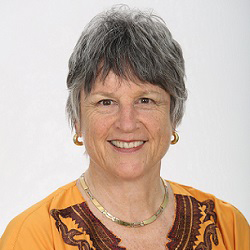
Professor Thomson's laboratory has developed genetically modified (GM) maize that is tolerant to dehydration.
South Africa is currently in a critical drought situation. Farmers are experiencing crippling losses and maize prices are rocketing. Although the Agricultural Research Council is testing GM drought-tolerant maize that has been developed using a bacterial gene donated royalty free from a multinational company, this gene is switched on continuously.
The dehydration tolerant plants that they have developed contain three genes derived from an African resurrection plant that is able to survive desiccation. The genes are only switched on when the plants are subjected to dehydration and heat. They therefore pose less of a stress on the plants under normal growth.
Professor Robin Wood: Director of the Desmond Tutu HIV Centre, Emeritus Professor of Medicine.
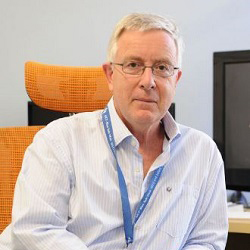
Professor Wood was one of the first physicians to treat and document the morbidity and mortality of South African patients living with HIV and AIDS.
He became an early advocate of antiretroviral therapy, allying with civil society to plead in the constitutional court for wider access for therapy. His studies of HIV and TB led him to recognise the high levels of TB transmission and to model transmission probabilities in South African prisons, schools and transport. TB transmission subsequently became a research priority of the World Health Organisation.
Professor Wood currently leads a Medical Research Council / UCT multidisciplinary research team, which is studying the aerobiology of TB transmission.
Special award in crop science and food security
(Selected from any one of the nominations in the other award categories in celebration of the 2016 International Year of Pulses as declared by the United Nations)
Professor Jill Margaret Farrant: DST/NRF SARChI* chair – Systems Biology Studies on Plant Desiccation Tolerances for Food Security, Department of Molecular and Cell Biology.
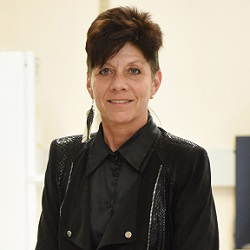
Scientists predict increased aridity in Africa due to inadequate rainfall. To feed growing populations, it is imperative to produce crops with improved drought tolerance.
Current crops have little tolerance of water loss and thus die under drought conditions. Despite efforts to improve crop resistance to water loss, such mechanisms fail under severe drought.
Resurrection plants tolerate extreme water loss, remain viable in the desiccated state for prolonged periods and resume growth upon watering.
Jill Farrant's research has shed light on the complex mechanisms of desiccation tolerance in such species and she aims to use these to produce crops that will survive extreme droughts.
Professor Jennifer Thomson: Emeritus Professor, Department of Molecular and Cell Biology.
TW Kambule-NSTF Awards: Research and its outputs
(For an outstanding contribution to SET and innovation by an individual over a period of up to 15 years after award of a PhD or equivalent, predominantly in South Africa)
Professor Crick Lund: Director of the Alan J Flisher Centre for Public Health.
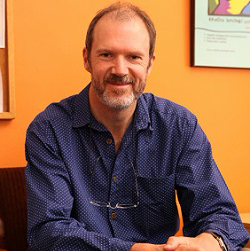
Professor Lund's research has pioneered the development of mental policies and services to address the growing burden of mental illness in South Africa and other low and middle-income countries (LMIC).
His scientific work has had a significant impact on the development of norms for mental health services, drafting of national mental health policies, development of WHO guidelines for mental health policy and services, identification of major social determinants of mental illness in LMIC, interventions that address the cycle of poverty and mental illness, and delivery and evaluation of new models of mental health care.
Research or engineering capacity development
(For a contribution by an individual over the last five to ten years)
Professor Peter Dunsby: Professor of Cosmology, Co-Director of the Astrophysics, Cosmology and Gravity Centre, Department of Mathematics and Applied Mathematics.

Professor Dunsby's strategy for developing human capital has over the past twelve years focused on a pioneering initiative to develop the next generation of astronomers and space scientists – The National Astrophysics and Space Science Programme.
He has also developed a highly successful integrated research programme in his own discipline (theoretical cosmology), involving postgraduate students, postdoctoral researchers and international collaborators, which has led to a significant growth of research capacity at UCT and at other tertiary institutions in South Africa.
Professor Sue Harrison: Director of the Centre for Bioprocess Engineering Research, DST/NRF SARChI* chair – Bioprocess Engineering.
TW Kambule-NSTF Awards: Emerging researchers
(For an outstanding contribution to SET and innovation by an individual – postdoctoral in a period of up to six years after award of a PhD or equivalent in research)
Doctor Tolu Oni: Senior Lecturer, Public Health Medicine Division, School of Public Health and Family Medicine.
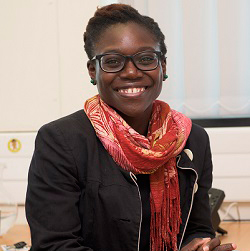
Dr Oni's research aims to contribute significantly to knowledge on the changing patterns of disease and the implications this has for the health and wellbeing of the population in the context of urbanisation.
Having worked in the field of HIV and TB within the South African urban informal setting since 2007, her current research focuses on urban health and equity.
Specifically, it focuses on the understanding of the interaction between commonly co-occurring chronic conditions (HIV, TB and non-communicable diseases), upstream health determinants, the unplanned urban environment and the impact on health outcomes.
Her research aims to develop intersectoral interventions to improve health focused on upstream determinants of health.
Doctor Jonathan Peter: Head of the Division of Clinical Immunology, Department of Medicine, Groote Schuur Hospital.

Tuberculosis remains the leading cause of death among people living with HIV. A failure to make the diagnosis of TB is a key problem responsible for high death rates.
Dr Peter's work has focused on evaluating novel strategies and tools that target this group of vulnerable TB/HIV co-infected patients and are suitable for resource-poor countries. He led the first inpatient evaluation of the only commercially available bedside urine test for TB.
In a recent multi-country randomised controlled trial, they demonstrated that using this cheap urine test to guide starting treatment resulted in fewer deaths when compared to using available, sputum-based diagnostics. Implementation of this test in high TB/HIV burden countries could save thousands of lives.
Doctor Sudesh Sivarasu: Senior lecturer, Biomedical Engineering.
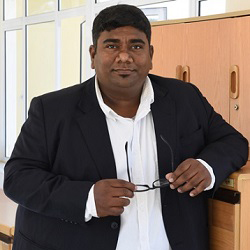
Up to to 95% of medical devices are imported in South Africa. This is primarily due to lack of innovations related to medical devices within the country.
To change this situation, Dr Sivarasu adopted his Frugal Biodesign Process™ and has developed several medical devices in the last five years.
These devices are at various technology readiness levels (TRLs) and some of the devices are in pre-clinical trials.
During this process, Dr Sivarasu has filed four patent family applications and has three granted patents for medical devices and several MedTech awards for his innovations.
Communication for outreach and creating awareness
(For an outstanding contribution to SET and innovation by a team or individual)
Professor Jill Margaret Farrant: DST/NRF SARChI* chair – Systems Biology Studies on Plant Desiccation Tolerances for Food Security, Department of Molecular and Cell Biology.
Research leading to innovation by a corporate organisation
(For an outstanding contribution to SET and innovation by a team or individual)
Dr Sudesh Sivarasu: Senior lecturer, Biomedical Engineering.
Research leading to innovation by a small, medium and micro enterprise
(For an outstanding contribution to SET and innovation by a team or an individual)
Strait Access Technologies Holdings (Pty) Ltd: Chief Executive Officer Professor Peter Zilla.
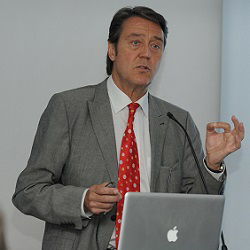
Millions of patients across the developing world suffer from rheumatic heart disease, a disease of poverty that leads to a destruction of the valves of the heart. Without sophisticated open heart surgery, it ultimately leads to death at a young age. As these patients have limited or no access to open heart surgery, devices were invented by Strait Access Technologies that allow heart valve replacements under the simple conditions of developing countries without open heart surgery. Additionally, a plastic material and a tanning method for animal tissue were also invented that make the replacement heart valves last much longer than typical commercial first world products.
The NSTF Awards Gala Dinner will be held on 30 June 2016 to recognise and celebrate the finalists, as well as to announce the winners.
Story Pete van der Woude. Photos Michael Hammond, Je'nine May and supplied.
* The South African Research Chairs Initiative (SARChI) was established in 2006 by the Department of Science and Technology (DST) and the National Research Foundation (NRF). It is designed to attract and retain excellence in research and innovation through the establishment of research chairs at public universities in South Africa with a long-term investment trajectory of up to fifteen years. The main goal of SARChI is to strengthen and improve the research and innovation capacity of public universities for producing high-quality postgraduate students and research and innovation outputs.
 This work is licensed under a Creative Commons Attribution-NoDerivatives 4.0 International License.
This work is licensed under a Creative Commons Attribution-NoDerivatives 4.0 International License.
Please view the republishing articles page for more information.










